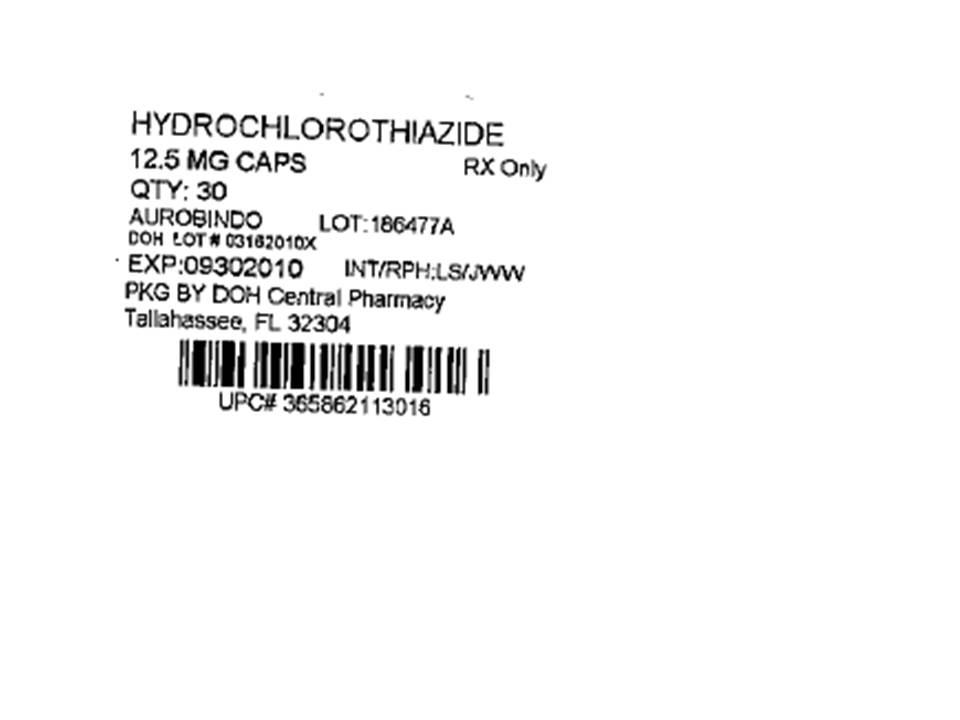Hydrochlorothiazide Capsule while Breastfeeding

What is Hydrochlorothiazide Capsule used for?
I am breastfeeding mother and I am using Hydrochlorothiazide Capsule. Can it have any bad effect on my kid? Shall I search for better alternative?

Nursing Mothers Thiazides are excreted in breast milk. Because of the potential for serious adverse reactions in nursing infants, a decision should be made whether to discontinue nursing or to discontinue hydrochlorothiazide, taking into account the importance of the drug to the mother.
Hydrochlorothiazide Capsule Breastfeeding Analsys
Hydrochlorothiazide while Breastfeeding
SafeCAS Number: 58-93-5
Thiazide diuretic drug. Excretion into breast milk is clinically non-significant. No side-effects were observed in a one-month old breastfed baby whose mother was treated with this medication. Drug level in the plasma of this child was undetectable. Long-term treatment with diuretic drugs (particularly Thiazide type ones with long-lasting effect and loop-acting mechanism) may inhibit lactation, mostly if lactation is not well-established yet. Use as lower dose as possible, especially during the first postnatal month. American Academy of Pediatrics 2013: Maternal Medication Usually Compatible With Breastfeeding. WHO Model List of Essential Drugs 2002: Compatible with breastfeeding.
Hydrochlorothiazide Capsule Breastfeeding Analsys - 2
Hydrochlorothiazide while Breastfeeding
CAS Number: 58-93-5
Hydrochlorothiazide doses of 50 mg daily or less are acceptable during lactation. Intense diuresis with large doses may decrease breastmilk production.
What should I do if I am breastfeeding mother and I am already exposed to Hydrochlorothiazide Capsule?
As usage of Hydrochlorothiazide Capsule is mostly safe while breastfeeding hence there should not be any concern. In case of any change in behavior or health of your baby you should inform your health care provider about usage of Hydrochlorothiazide Capsule else no further action is required.
I am nursing mother and my doctor has suggested me to use Hydrochlorothiazide Capsule, is it safe?
Usage of Hydrochlorothiazide Capsule is safe for nursing mothers and baby, No worries.
If I am using Hydrochlorothiazide Capsule, will my baby need extra monitoring?
No
Who can I talk to if I have questions about usage of Hydrochlorothiazide Capsule in breastfeeding?
US
National Womens Health and Breastfeeding Helpline: 800-994-9662 (TDD 888-220-5446) 9 a.m. and 6 p.m. ET, Monday through Friday
UK
National Breastfeeding Helpline: 0300-100-0212 9.30am to 9.30pm, daily
Association of Breastfeeding Mothers: 0300-330-5453
La Leche League: 0345-120-2918
The Breastfeeding Network supporter line in Bengali and Sylheti: 0300-456-2421
National Childbirth Trust (NCT): 0300-330-0700
Australia
National Breastfeeding Helpline: 1800-686-268 24 hours a day, 7 days a week
Canada
Telehealth Ontario for breastfeeding: 1-866-797-0000 24 hours a day, 7 days a week
